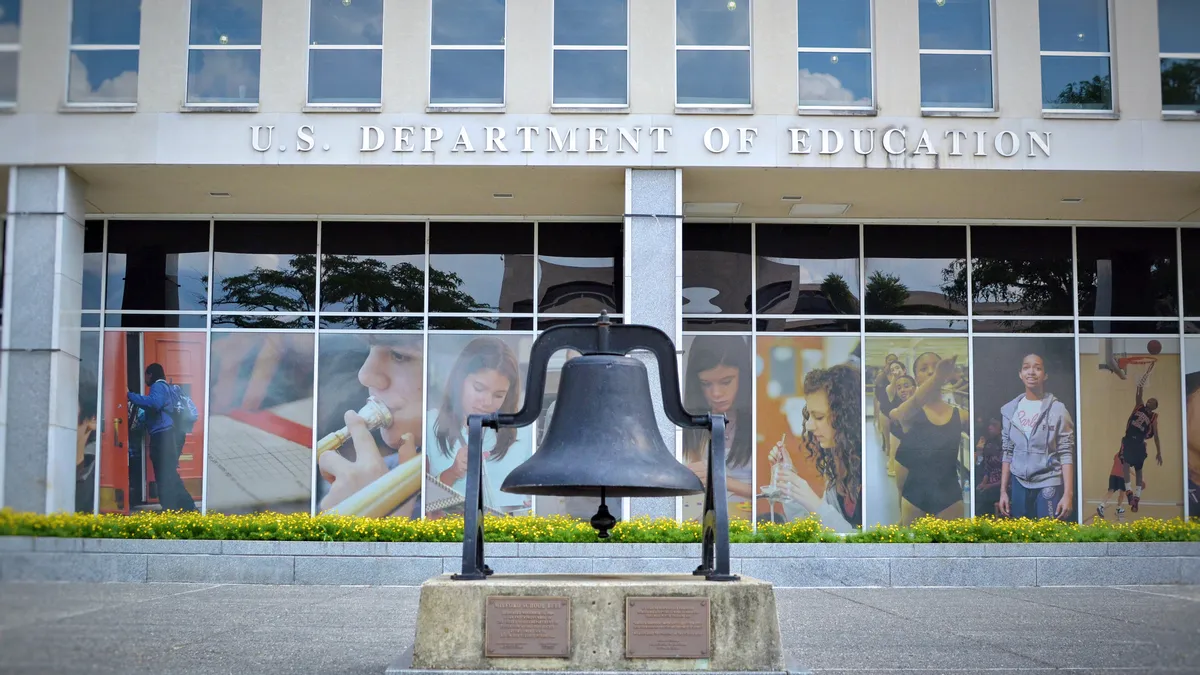Dive Brief:
- Grand Canyon University (GCU) received full accreditation earlier this month for its theology graduate program, according to Christianity Today (CT). The Association of Theological Schools' (ATS) Commission on Accrediting included its approval for Grand Canyon Theological Seminary's comprehensive distance education program, in this case its online degrees.
- Grand Canyon's interdenominational seminary opened in 2016, according to to CT. It offers five master's programs, including a master of divinity. The online master of divinity program charges $340 per credit hour, according to GCU's website.
- The divinity school at fellow Christian college and online powerhouse Liberty University is also an ATS candidate and, according to CT, is expected to finish its review in the fall.
Dive Insight:
Established 70 years ago as a Baptist-affiliated college, GCU's religious focus and online reach has drawn comparisons to Liberty. Founded by evangelical Christian figurehead Jerry Falwell and now overseen by his son, Jerry Falwell Jr., Liberty University was the second-largest online college provider by 2015 and, according to ProPublica, enrolls some 95,000 remote students annually. Meanwhile, by the end of 2017 nearly 80% of GCU's roughly 90,000 students were enrolled online.
For-profits helped lead the way in offering online programs as a way of reaching older and working students. But colleges across higher ed, including public universities, are also launching or expanding their online programs as they seek revenue, growth and a hedge against irrelevance.
Just this month, the University of Massachusetts System announced it was launching a national online platform for online education that would compete with the likes of Arizona State and Southern New Hampshire University. It would also be a bulwark against what the university's president called an "existential threat" from projected demand declines.
For Liberty, online education has also had the benefit of being lucrative. As ProPublica reported last year, the Christian college brought in $772 million in federal student aid by 2017 — the sixth-highest figure in the nation — and another $42 million from the Department of Veterans Affairs in 2016. One former professor told ProPublica that "on the online side, they were making a killing." The investigative news organization also reported that Liberty had an aggressive marketing operation that pressured and incentivized staff to enroll new students and also targeted members of the military as prospective students.
Liberty operates as a nonprofit, but ProPublica pointed out that, for all the revenue it brought in, it spends "a fraction" on instruction compared to traditional private colleges. (For example, Liberty spends less than a tenth per student of what Notre Dame does.)
For its part, GCU was organized as a for-profit until it converted to a nonprofit last year. However, it still pays 60% of its tuition and fee revenue to the for-profit Grand Canyon Education, which spun the university off. The company's CEO, Brian Mueller, also serves as president of GCU, an arrangement that some have pointed out is a potential conflict of interest.
Seeking industry-standard accreditation through ATS for its seminary and theological degrees firms up a revenue stream for both Grand Canyon and Liberty. CT cited 2017 figures from ATS showing enrollment in online degree programs doubled over the past decade as students stopped attending regional extension campuses.
Seminary training's trend toward online follows that of other educational specialties. Legal degrees, for example, are also shifting online. "Law school is not always located near where people who want this kind of training are," Barry Currier, managing director for the American Bar Association, explained in an interview with Education Dive earlier this year. "They're people who are out there in the workforce looking for training … and don't have the ability to move to where the programs are."










